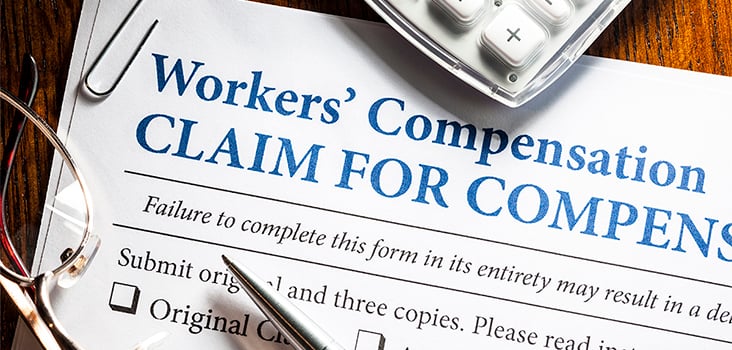
Do You Know if Workers' Compensation is Required in Your State?
Workers’ compensation can be a tricky and complicated system to maneuver – especially because there are 51 unique systems set up in the United States. Workers’ comp is regulated by the states (including the District of Columbia), and no two states have the same regulations.
As a small business owner, you may dismiss workers’ compensation as something only large enterprises need to worry about. But most states require businesses of any size to carry workers’ comp insurance, so you may need to have coverage even if it’s just you and one employee.
States can be sorted into groups with similar regulations, but each state has certain exceptions and exemptions to the general rule. Common exemptions include those for agricultural employees, domestic employees, and seasonal employees. Other exemptions can be based on an employee’s salary or status (full-time, part-time, contract, etc.), what industry you’re in, or whether the company is self-insured.
There are four basic categories that each state falls into:
1. States that Require Workers’ Compensation in Every Work Situation
This category covers most states – 25 of them, to be exact. This means regardless of how many employees you have, what type of employees they are (full-time, contract, etc.), or what industry you’re in, you are required to carry workers’ compensation insurance. That said--because each state has unique regulations, there are certain exceptions or exemptions in most states.
The following states, in alphabetical order, fall into this category:
California, Illinois, Indiana, Iowa, Kansas, Kentucky, Louisiana, Massachusetts, Michigan, Minnesota, Montana, Nebraska, New Jersey, New York, North Dakota, Oklahoma, Oregon, Pennsylvania, Rhode Island, South Dakota, Utah, Vermont, Washington, West Virginia, Wyoming
2. States that Require Workers’ Compensation for Employers with One or More Employees
This category and the next are split almost evenly between the remaining states, with 13 requiring workers’ comp for employers with one or more employees. In this case, if you own a business but you haven’t hired any additional employees, you don’t need to purchase workers’ compensation insurance. If you own a business and you’ve hired at least one additional employee, workers’ comp is required. Again, each state has its own exceptions and exemptions.
The following states, in alphabetical order, fall into this category:
Alaska, Arizona, Colorado, Connecticut, Delaware, D.C., Hawaii, Idaho, Maine, Maryland, Nevada, New Hampshire, Ohio
3. States that Require Workers’ Compensation for Employers with Three/Four/Five or More Employees
The remaining states (minus one…we’ll get to that next) fall into this blended category, where employers need a few more employees before they’re required to buy coverage. You’ll need to look at your state’s law to know whether the minimum is three, four, or five. And, as always, there are unique exceptions and exemptions for each state.
The following states, in alphabetical order, fall into this category:
Alabama, Arkansas, Florida, Georgia, Mississippi, Missouri, New Mexico, North Carolina, South Carolina, Tennessee, Virginia, Wisconsin
4. Texas – Workers’ Compensation Is Not Required for All Employers
The Lone Star State gets its own category for workers’ compensation regulations. Texas is the only state that does not require employers to carry workers’ compensation insurance. However, Texas employers can still be held liable for occupational injuries, and employees have the legal right to file compensation claims. There are some exceptions, like construction contracts for government entities, where workers’ comp is still required.
Regardless of the category your state falls into, you’ll need to look deeper into the specific workers’ compensation laws of your state to know what’s required of your business. If you do business in multiple states, you’ll have to follow the unique regulations for each state in which you’re located.
To learn about your state’s requirements, visit their workers’ compensation department website. You can find your state’s local workers’ compensation official on the Department of Labor’s website.



